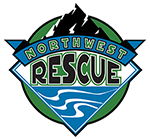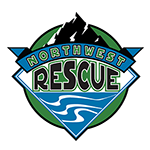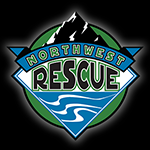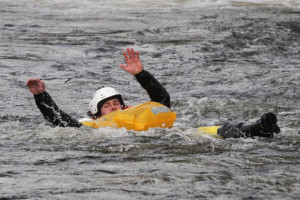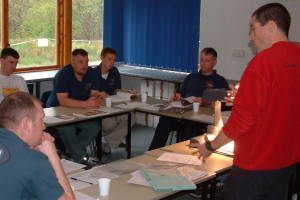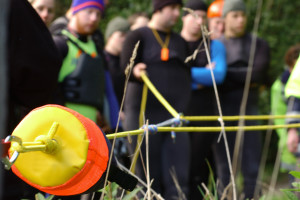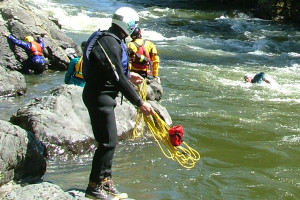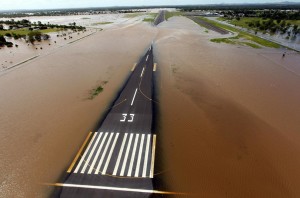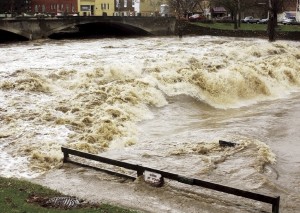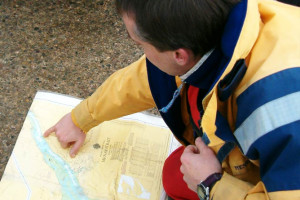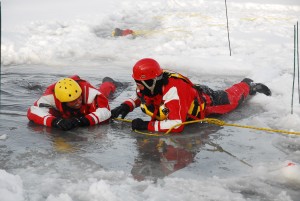Water for Industry and Government
Many jobs have the possibility of employees working in or around water. Whether it’s public works employees who are deployed during storms, a biologist out in the field who may cross rivers, or someone simply working near a lake, having a knowledge of the hazards and risk factors associated with water is a must. Northwest Rescue’s water courses teach students the risk factors, ways to mitigate that risk, and simple rescue techniques should a rescue become necessary.
Lifejacket Competent User
This course is designed for personnel who operate near the water and wear an inflatable lifejacket as part of their personal protective equipment.
Safe Work Near Water
A classroom-based course that looks at the hazards and risk associated with lakes, canals, rivers and coastal water.
Co-Worker Rescue From Water – Basic
This course providers the knowledge and techniques to allow employees to provide bank-based rescue cover for their colleagues working next to basic water environments.
Co-Worker Rescue from Water – Basic and Moving
This course providers the knowledge and techniques to allow employees to provide bank-based rescue cover for their colleagues working next to moving water.
Flood Worker Safety
This one day course assists organizations who’s workers may work around flood water, such as road contractors, storm water contractors, flood engineers, and vehicle break down services.
Flood Operations
The Flood Operations course was designed to provide emergency planners and emergency workers with the necessary knowledge and techniques to enable them to assess and work in flood environments.
Flood Management for Non-Emergency Services
The FMNES course is designed for managers of non-emergency services during flood events, for example, managers of utilities, road workers, and transport companies.
Surface Ice Field Safety
This course is comprehensive training for those who work or travel on ice over lakes, ponds, and reservoirs, or rivers that are completely frozen over.
